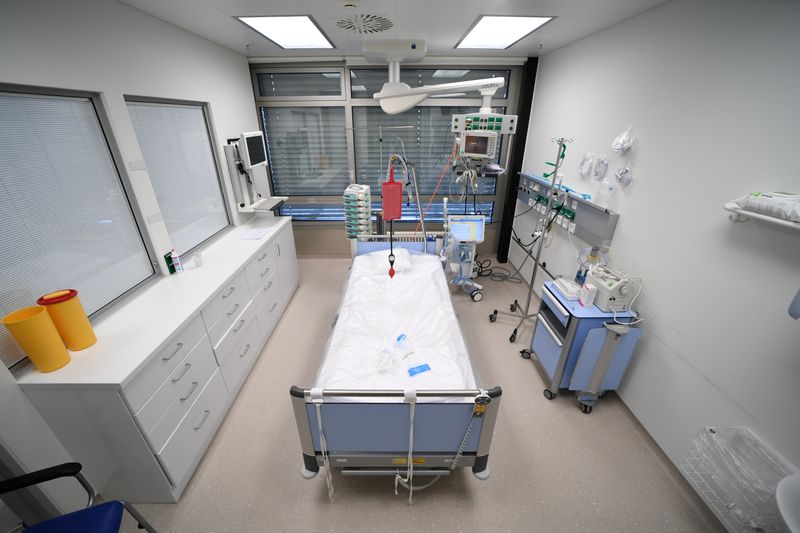By Riham Alkousaa and Paul Carrel
BERLIN (Reuters) - Five years ago the arrival of a wave of refugees caused much consternation and fueled support for Germany's far-right. Now, the country is turning to its migrant community to plug an anticipated shortage of medical staff battling the coronavirus.
The German government says it can double its number of intensive care beds, and even produce more ventilators but a medical staffing crunch is shaping up as the Achilles heel of its strategy to fight the coronavirus.
In Saxony, the heartland of the nationalist Alternative for Germany (AfD), the regional medical board is advertising for migrant doctors to help tackle an expected rise in cases.
"Foreign doctors who are in Saxony but do not yet have a license to practice medicine can help with corona(virus) care," read a Facebook (NASDAQ:FB) appeal. https://www.facebook.com/185347338173082/posts/3576654775708971/?substory_index=0
The push to tap migrant medics in Saxony comes despite the AfD enjoying a surge in support in a regional election there last year, harnessing voter anger over refugees to come second behind Chancellor Angela Merkel's conservatives.
Merkel's 2015 decision to open Germany's borders to some 1 million migrants fleeing war in the Middle East - the defining moment of her chancellorship - was widely criticized by the AfD and even many of her own conservatives.
A new film, 'Merkel - Anatomy of a Crisis', also takes a critical look at her handling of the refugee influx.
But the coronavirus epidemic means medics of all backgrounds are in demand.
Saxony's regional medical board reported on Monday that 300 volunteers had responded to its appeal for help, including "many foreign doctors whose licensing procedures are not yet completed, whose help is very welcome."
As of Tuesday, there were 31,554 cases of coronavirus in Germany, with 149 deaths, the Robert Koch Institute for infectious diseases said. The government says Germany is still at the beginning of the epidemic.
Shadi Shahda, 29, is one migrant medic ready to help.
He came to Germany last April on a visa for highly-qualified job seekers and with three years' experience as an ENT (ear, nose, throat) medical resident in Syria. But a language exam he needed to take this month to work as a doctor in Saxony was canceled due to the coronavirus.

He jumped at the medical board's Facebook post and says: "I am waiting for their call ... I was very happy when I saw that I could do something in the country where I am living."